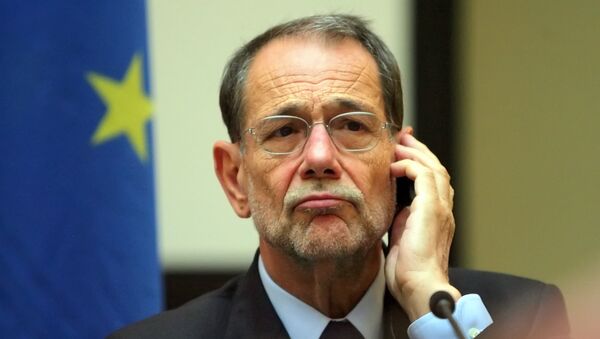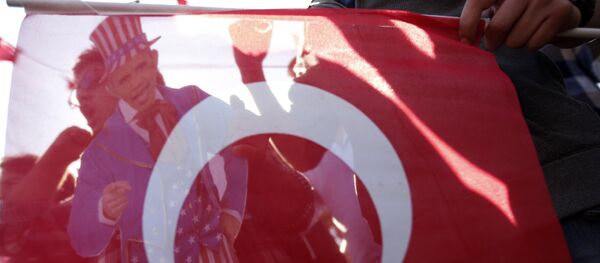“The problem for Turkey is that its interests are not as straightforward as stopping Daesh (also known as the Islamic State/ISIL/ISIS), or even driving Assad from power. It also aims to ensure that Kurdish groups – such as the Democratic Union Party (PYD) of Syria, which is closely affiliated with Turkey’s Kurdistan Workers’ Party (PKK) – do not consolidate control of territory in Syria, now or during the post-conflict reconstruction,” Javier Solana wrote in his article for the global affairs website Project Syndicate.
Turkey’s opposition to empowering the Kurds, in turn, has been a source of tension with its traditional ally, the United States, which believes the Kurds are the only force on the ground capable of fighting Daesh.
“The rekindled hostility between Turkey’s government and the PKK is thus undermining Turkey’s interest in the success of the Syrian peace negotiations,” Solana says.
Ankara cannot risk being perceived as a country that jeopardizes basic freedoms, thereby widening the gap with its allies — the EU and the US.
“Two factors will sustain its position as an essential ally of the US and the EU: improved relations with the Kurds and progress toward a settlement in Cyprus. In the Syrian peace process, the decisions Turkey makes can either drive or impede progress toward a settlement.”
“Defeating Daesh remains a top priority. This will require negotiating with Russia – something that EU members have recognized. Since the Paris attacks in November, efforts to strengthen cooperation against terrorism, including between France and Russia, have intensified. If Turkey wants its relationship with the EU to continue to improve, it will have to engage, too,” says the politician.
“Turkey recently demonstrated its ability to overcome complex challenges, wisely restoring full diplomatic relations with Israel after a five-year breach in ties. Given this, reconciliation with Russia cannot be ruled out. Such an approach would, no doubt, facilitate the management of a host of risks that have been exacerbated by the Syrian conflict, Solana concludes.




